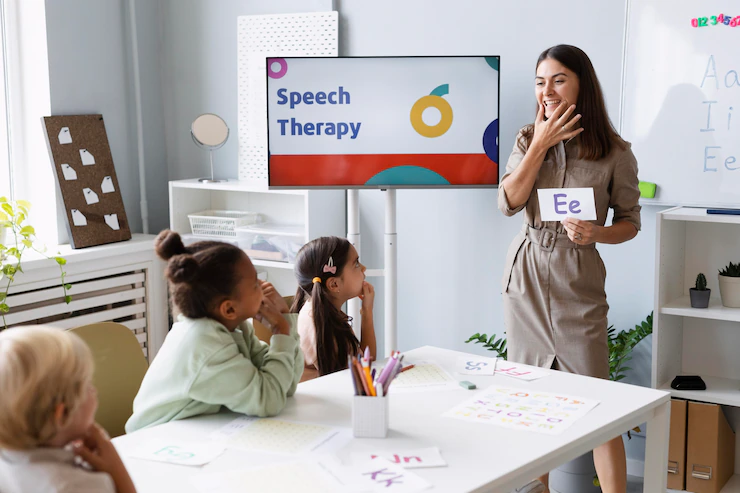
Receiving your child’s autism diagnosis can be unnerving. Maybe you had an inclination or perhaps, the official diagnosis came as an absolute shock to you; either way, it can be challenging and anxiety-inducing to reimagine your little one’s future with the pervasive presence of a serious developmental condition.
But remember, you are not alone, and it is absolutely normal to feel this way. An autism diagnosis does not change who your child is or what they are capable of accomplishing.
The important thing here is to understand that autism can be managed. To date, there is no known ‘cure’ for autism spectrum disorder (ASD). However, there are myriad treatment options for ASD, through which your child will be able to grow, learn, and acquire new skill sets within the realm of their unlimited potential, just like typically developing children. Hence, some of the most essential steps to take, following your child’s diagnosis, is to thoroughly educate yourself as well as your immediate family members about the extent of the condition while modifying and regulating your home environment to ensure that your child’s unique needs can be adequately met. And of course, it is of utmost importance to seek professional treatment services for autism by reaching out to evidence-based approaches such as Early Autism Services (EAS).
Autism Diagnosis: What to Expect
As the name suggests, children with ASD can display a ‘spectrum’ of symptoms varying from lower functioning to higher functioning. Based on the condition’s severity and where they are on the spectrum, the symptoms experienced by your child can fit into one of these diagnostic levels, according to the Diagnostic and Statistical Manual of Mental Disorders (DSM-5):
Level 1 – Considered the mildest form of autism spectrum disorder (ASD), children at this level are ‘highly functioning’ and have mild symptoms that don’t necessarily impact academic performance or interpersonal relationships substantially. However, they do require a certain degree of support. Also, these kids may not experience significant impairments in terms of their cognitive or communication skills. Children formerly diagnosed with PDD-NOS or Asperger’s Syndrome would now be categorized under Level 1.
Level 2 – Level 2, or the middle-range of autism, necessitates ‘substantial support,’ and the severity of symptoms is relatively more intense compared to Level 1. The issues faced by children include restricted interests and trouble with vocal communication, in addition to repetitive behaviors. Moreover, they may also experience difficulties in using or understanding non-verbal communication, including gestures and facial expressions.
Level 3 – As the most impairing level in terms of symptom severity, children that are classified under Level 3 need ‘very substantial support’ and are considered ‘lower functioning.’ They also depict significant impairments in their cognitive and vocal abilities and, as a result, are unable to live independently.
Therapies & Treatment Options for ASD
After your child’s diagnosis, it is important to communicate with experts about designing a strategic treatment plan for the best results. Over the last few decades, research pertaining to treatments for autism has also grown exponentially, thus presenting parents and professionals with new support ideas and strategies. Accordingly, the treatment options for autism spectrum disorder may include the following –
Applied Behaviour Analysis (ABA)
Applied behavior analysis, or autism ABA, is one of the most widely accepted and researched forms of behavioral therapy for children with ASD. At Early Autism Services, our center-based ABA therapy services offer a fun and inviting environment for your child to learn, explore, and grow! With board certified behaviour analysts, well-developed ABA therapy techniques, and in-home ABA therapy sessions, your child will truly receive the support needed to thrive in every aspect.
Occupational Therapy
Occupational Therapy (OT) is of significant value when addressing underlying issues associated with physical, cognitive, sensory, motor, and social skills consistent with developmental conditions like autism. And in this regard, an occupational therapist can greatly help your child enhance their quality of life in school as well as at home! With a core focus on promoting the development of essential life skills, your kid will be able to learn daily life skills, such as dressing up on their own, brushing, toilet training, and others.
Educational Therapy
Children diagnosed with ASD typically respond very well to highly structured academic plans. Some of the most successful educational programs used by professionals include various activities in order to improve communication, behavioral, and social skills, coupled with the steadfast efforts of an experienced team of specialists.
Mental Health Services
Children with autism spectrum disorder are at a higher risk of experiencing mental health problems, including phobias, obsessive-compulsive disorder (OCD), and attention deficit hyperactivity disorder (ADHD). Your child’s pediatrician and mental health professional can provide you with the right resources and assistance required to manage ASD-related mental health issues and conditions.
Medication Management
Presently, there is no specific medicine for treating autism. However, several medications may help with associated symptoms. Research suggests that medication is most effective when combined with behavioral therapies for ASD and should always be taken after a recommendation from an experienced development pediatrician. Also, ensure your ABA team is in the loop as some of the drugs may have side effects.
Speech and Language Therapy
Social communication, as well as the development of speech and language, can be adversely impacted by autism in several ways. As an integral part of therapies for autistic children, speech therapy can help cater to a wide variety of communication challenges while enhancing their nonverbal, verbal, and social skills. Moreover, children with autism also tend to be more visual learners than verbal learners. As a result, they will significantly benefit from visual interpretations and representations of language that supplement what is said verbally.
What’s Next?
Although children diagnosed with ASD can effectively learn and compensate for related issues throughout the course of their life, the majority of kids will still need a certain degree of assistance. As a result, it is integral to plan for their future by availing the services and facilities required to make the process absolutely seamless.
For more information, make sure you check out our resources for parents and schedule a free consultation with EAS’ expert behavior analysts here. Our team can provide you with a basic overview of our programs, answer questions about the different approaches we use, discuss costs, and walk you through your insurance coverage, as well.




Recent Comments